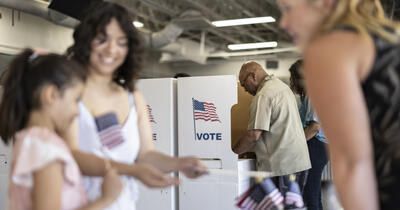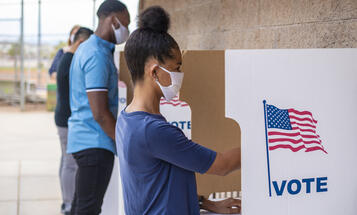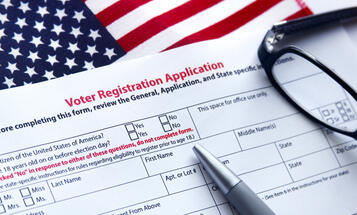
Rogue 8th Circuit Highlights Need for Stronger Voting Rights
Private citizens must retain the right to challenge anti-voter laws.

WASHINGTON, D.C. — Phi Nguyen, Director of Democracy at Dēmos, a think tank aligned with grassroots organizations committed to racial justice, released the following statement in response to the 8th Circuit’s ruling barring individuals from bringing lawsuits under Section 2 of the Voting Rights Act:
"The 8th U.S. Circuit Court of Appeals' unprecedented refusal to comply with the well-established right of voters to challenge discriminatory voting practices under Section 2 of the Voting Rights Act is unconscionable. It rejects decades of precedent, including from the Supreme Court and the 8th Circuit itself, and is also radically out of step with the rest of the country. While the 8th Circuit's anti-voting rights ruling only applies to seven states—Arkansas, North Dakota, South Dakota, Iowa, Missouri, and Minnesota—it underscores the ongoing efforts to attack the VRA.
Section 2—particularly the private right of action it guarantees voters—has remained a vital tool for addressing voting rights issues.
"Since the Supreme Court gutted the VRA's preclearance provision in Shelby County v. Holder, anti-democracy groups have worked overtime to whittle away what remains of the law. As Mother Jones previously reported, a well-funded dark-money network supported by Leonard Leo not only worked to appoint right-wing judges but has also doubled down on efforts restricting voting rights. Despite these attempts to erode the VRA, Section 2—particularly the private right of action it guarantees voters—has remained a vital tool for addressing voting rights issues.
"Voters and other private plaintiffs—not the U.S. Attorney General—have filed most of the over 400 Section 2 challenges litigated in federal court over the last 40 years. Shelby County's dismantling of the preclearance provision has made Section 2 even more crucial for blocking voter suppression laws and discriminatory voting practices, including racial discrimination in the redistricting process. Proactive litigation led by voters is often the only way to remedy harm from anti-voter laws. A clear example is the Supreme Court's decision in favor of voters in Allen v. Milligan, a racial gerrymandering case brought under Section 2 by private individuals in Alabama.
Voting rights should not be subject to the whims of a rogue court.
"At Dēmos, we believe that protecting and expanding full participation in our democracy demands that people have the tools and resources to defend their rights. The ongoing attacks on the VRA underscore the need for Congress to restore and strengthen critical protections for voters, including preclearance. Voting rights should not be subject to the whims of a rogue court. Protecting our rights requires a clear and continuous commitment to a multiracial democracy that works for us all."




